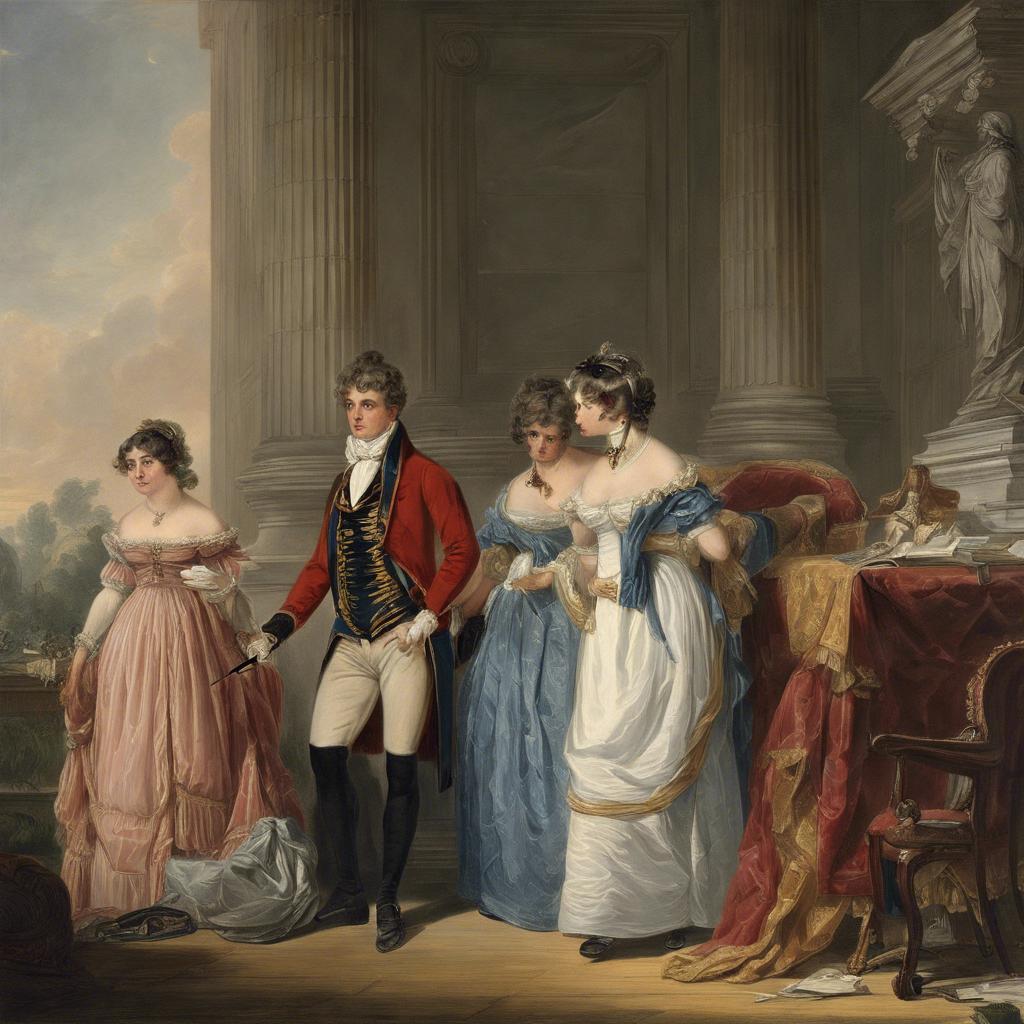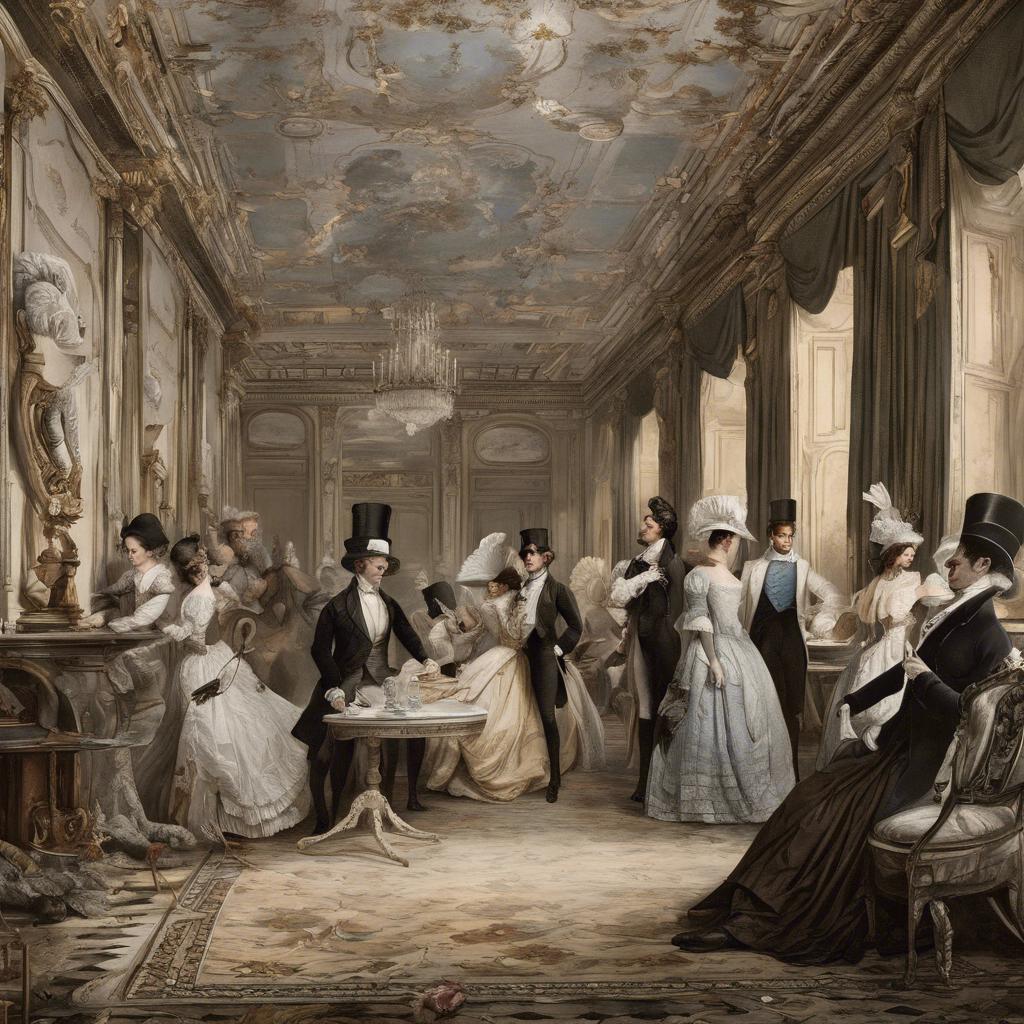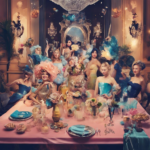The Regency Era, spanning from 1811 to 1820, marked a period of significant political, social, and cultural transformation in British history. From the reign of King George III’s illness to the ascension of King George IV, this era captivated and reshaped the landscape of England. However, as with all periods of history, the Regency Era came to a close, leaving behind a legacy of change. In this article, we delve into the factors that led to the end of the Regency Era and the impact it had on British society.
Step Into the World of Cheryl Bolen
Dive into the enchanting stories of love, intrigue, and elegance set in the Regency Era. Cheryl Bolen's novels offer timeless romance and captivating tales that will leave you wanting more.
Explore Cheryl Bolen's Books Now
Causes of the Decline of Regency Era Society
One of the key factors contributing to the decline of Regency Era society was the economic instability that plagued the period. The costly Napoleonic Wars had drained the British treasury, leading to high levels of debt and a struggling economy. This economic downturn meant that many aristocratic families faced financial challenges, resulting in a decline in their social status and influence.
Another significant cause of the decline of Regency Era society was the changing social attitudes and values of the time. The Industrial Revolution brought about major shifts in societal norms and structures, leading to a reevaluation of traditional class distinctions. The emergence of a new middle class challenged the power and privileges of the aristocracy, further weakening the foundations of Regency society.
Furthermore, political unrest and social upheaval also played a role in the decline of Regency Era society. The growing demand for political reform and the rise of radical ideologies posed a threat to the established order, leading to increased social tensions and instability. The lack of unity and cohesion within the ruling class further exacerbated these challenges, ultimately contributing to the downfall of Regency society.
Shifts in Political Power and Structural Changes
The end of the Regency Era marked a significant shift in political power and structural changes in British society. One of the main reasons for the end of this era was the death of King George IV in 1830, which led to the accession of his brother, William IV, to the throne. With the new monarch came a change in political dynamics and a reevaluation of the social norms that had characterized the Regency period.
During the Regency Era, there was a growing discontent among the people due to the perceived extravagance and excesses of the ruling class. The end of the era brought about a renewed focus on reform and a push for more egalitarian policies. This shift in political power was also influenced by the rise of new social movements and the increasing demand for greater representation in government.
As the old ways of governance began to crumble, new structures and systems emerged to meet the changing needs of society. The end of the Regency Era paved the way for the Victorian era, a time of great social, political, and economic transformation. This period saw the consolidation of the British Empire and the emergence of new industries, shaping the course of British history for decades to come.
Impact of Economic Turmoil on Regency England
In early 19th century Regency England, economic turmoil had a significant impact on society, politics, and the monarchy. The Napoleonic Wars, which raged from 1803 to 1815, placed a heavy burden on the British economy. The cost of funding the war effort led to increased government debt, high taxes, and inflation, causing widespread hardship among the population.
As the economic situation worsened, social unrest grew, leading to protests and calls for political reform. The Peterloo Massacre of 1819, where British cavalry charged into a crowd of peaceful protesters in Manchester, highlighted the growing tension between the government and the people. The combination of economic hardship and political instability ultimately played a role in the end of the Regency era.
Despite the challenges of the time, the Regency era also saw cultural and artistic flourishing. The Romantic movement in literature and the arts, led by figures like Lord Byron and Jane Austen, reflected the period’s social and political turbulence. While the economic turmoil of the time played a significant role in shaping the end of the Regency era, the legacy of this period continues to influence British society and culture to this day.
Cultural Evolution and the Rise of Victorian Values
During the Regency Era, the cultural landscape of Britain began to shift, paving the way for the eventual rise of Victorian values. This period, characterized by the reign of King George IV, lasted from 1811 to 1820 and marked a transition from the more extravagant and hedonistic Georgian era to a time of greater moral and social conservatism.
Several factors contributed to the end of the Regency Era and the beginning of the Victorian period. These include:
- The death of King George IV in 1830, leading to the accession of his brother, William IV, who was seen as a more moral and upright monarch.
- The impact of the Industrial Revolution, which brought about significant social and economic changes, leading to a greater emphasis on hard work, thrift, and self-discipline.
- The influence of evangelical religious movements, such as Methodism, which promoted values of temperance, charity, and family stability.
As Victorian values began to take hold, there was a gradual shift towards a more ordered, disciplined, and morally upright society. This transformation marked the end of the Regency Era and laid the groundwork for the cultural evolution that would define the Victorian period.
The Way Forward
the end of the Regency Era marked a significant transition in British history, as the country moved from a period of regency to the reign of a new monarch. The various factors that contributed to the end of this era, including political, social, and economic changes, reflect the dynamic nature of the 19th century and the evolving landscape of British society. As we look back on this period with historical perspective, we can appreciate the complexities and regency era movies and tv shows”>challenges faced by the people of the Regency Era, and how their decisions and actions shaped the course of history.


